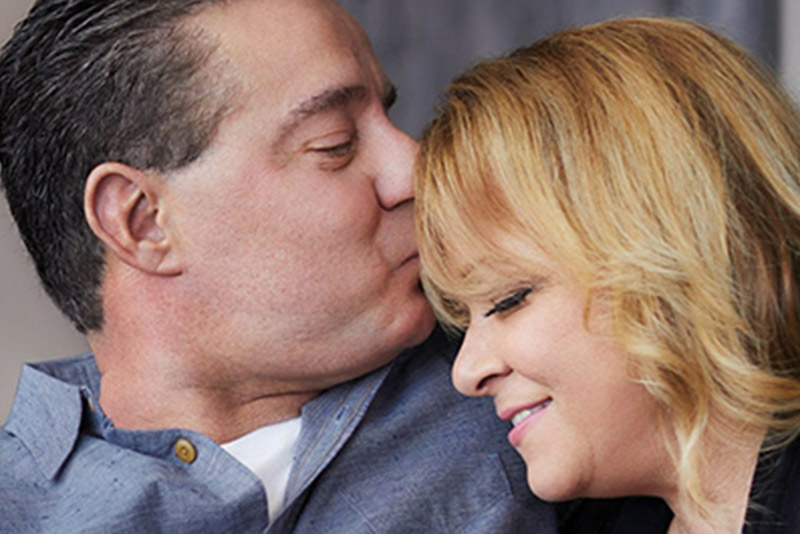What Happens When You Are Diagnosed with Cancer?

August 12, 2021
Finding out that you have cancer can be extremely difficult to hear. You may not be sure what to do when you’re diagnosed, but you may have a sense of urgency and feel pressured to figure out your treatment options quickly.
Fortunately, you don’t need to make complex decisions on your own. A team of health care providers will work with you, recommending and providing the best care possible, all while taking into consideration your diagnosis and health history.
“Doctors and other health care providers will come together to form your cancer care team,” says David Siegel, M.D., Ph.D., chief of the Division of Multiple Myeloma at John Theurer Cancer Center, one of the nation’s foremost authorities on multiple myeloma. “Your team will educate you about your condition, make recommendations for your care and offer choices whenever possible. They’ll also have your best interests in mind for your physical and emotional health.”
Determining your treatment plan
Your doctors will need to know the cancer’s stage – how far it’s spread – and other details to map out a treatment plan. They may have enough information already, or they may need to do additional testing to see if you respond to certain treatments. For example, some treatments target specific genetic mutations within cancer cells. Others may trigger your immune system to attack certain cancer cells. Your doctors will review your test results, including:
- blood tests
- biopsy reports
- imaging tests (MRI, CT scan, PET scan, X-ray)
When you and your doctors settle on a plan, it’s important that you understand how the treatment will be administered, what the expected results will be and what side effects the treatment may cause.
“Your doctor should explain everything to you in a way that you can grasp, and you should ask questions until you understand everything,” says Thomas Bauer, M.D., FACS, MBA, chief of Surgery and medical director of Thoracic Surgery at Jersey Shore University Medical Center. “You may also want to consider bringing someone with you to your appointment who can help you stay organized and take notes so you’re more at ease.”
Understanding your providers’ roles
Several health care providers may care for you throughout your cancer diagnosis and treatment. If you’re having trouble keeping track of everyone, your nurse navigator – a registered nurse who provides personalized support to cancer patients – may help. Your nurse navigator will guide you through your diagnosis and treatment, help you stay on top of appointments, provide emotional support and explain which providers offer different services.
Depending on your specific cancer diagnosis, you may need to meet with a:
- surgical oncologist, who surgically removes cancerous tumors
- medical oncologist, who administers chemotherapy, immunotherapy or targeted therapy
- radiation oncologist, who targets cancer cells with radiation therapy
- plastic surgeon, who reconstructs body parts (such as breasts) after cancer surgery
- social worker, who provides cancer patients with emotional support and coping skills
Staying on top of your health
Although your nurse navigator can remind you of upcoming appointments, you should take an active role in managing your own care. Some people feel a greater sense of control over their health when they learn as much as possible about their cancer and advocate for themselves if they’re able to during treatment. To help keep track of your health:
- add every upcoming appointment to your calendar, so that you don’t miss any treatments
- file your health information in one place, so that you can bring it to appointments as needed
- keep medication in one place and add reminders to your phone, so that you remember to take it
- track how you’re feeling in a journal, so that you’ll know how you’re progressing
Coping with life with cancer
After a cancer diagnosis, some aspects of your life may feel very different, but other things may seem similar. You may still go to work as usual, but you may feel more tired or emotionally drained than before. It’s crucial to recognize the impact that cancer has had on your life, rather than trying to ignore its influence. It may help if you:
- talk to close friends or relatives about your feelings and concerns
- meet with a mental health therapist, if you need help coping with your diagnosis or treatment
- consider joining a cancer support group
- focus on hobbies and activities that bring you joy
- eat healthy foods, stay as active as you can and make time for enough sleep
- live your life meaningfully every day
“More people today are surviving cancer and living life fully because of advancements in treatment,” says Dr. Bauer. “Your cancer diagnosis and treatment may be part of your story, but they don’t have to define you.”
Next Steps and Resources
- Meet our source: David Siegel, M.D., Ph.D.
- To make an appointment with Dr. Siegel or a Hematology Oncology, Myeloma Specialist, call 800-822-8905 or visit our Hematology Oncology providers directory.
- Learn more about Hematology Oncology at Hackensack Meridian Health.
The material provided through HealthU is intended to be used as general information only and should not replace the advice of your physician. Always consult your physician for individual care.






